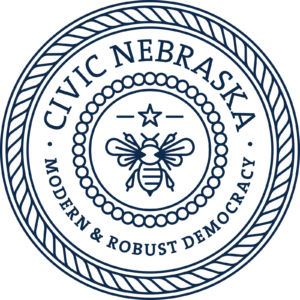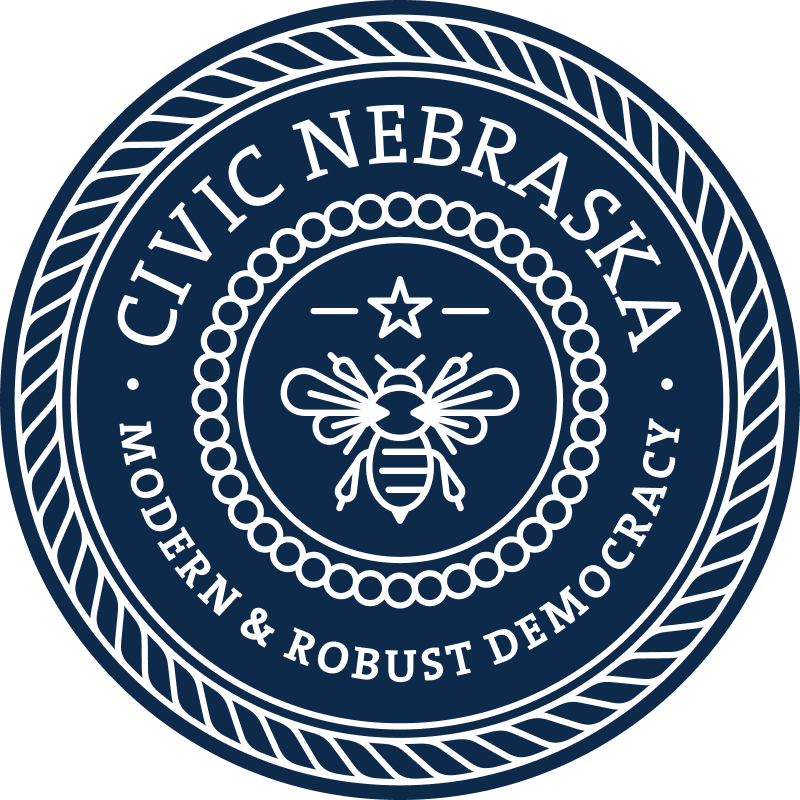These days, ‘politics’ can be a dirty word. Who can blame reasonable people for being averse to endless partisan drama, ideological mendacity, and party-line gridlock? Especially because when it comes to politicians, more is always said than is ever done. “Nothing really changes,” says the self-avowed apolitical American. “So why bother with any of it?”
There is comfort in declaring oneself apolitical. It’s nice to consider ourselves above what we see as petty squabbles at the Capitol, the Statehouse, or City Hall. This allows us to airlock politics from our lives until we absolutely have to summon it again. Every two or four years, we might crack open the hatch, briefly step out and blacken a few ovals, then seal off that segment of our lives again until the next Election Day.
And yet, politics is everywhere, whether or not we want it to be. And we all are inherently political creatures, whether we want to be or not.
Despite the popular definition that causes such revulsion, politics is not just the narrow actions of Beltway insiders. Politics is our realm of public life. It’s where Americans of diverse backgrounds, ideals, and opinions work, directly or indirectly, to shape our society. We all participate in politics, whether we know it or not: What we buy, who we agree with, who we disagree with, our daily discussions, our donations and volunteer hours, every daily act that favors the common good or advances our individual interests – all of these are political acts.
Consider an “average day” in America. Everything from the resources we expend to the physical infrastructure we share to the worker and consumer protections we enjoy is the result of someone at some point asking, Why are things like this? and then championing ideas to make them better. These ideas may have seemed radical or unattainable at the time. Ask those who advocated for the 40-hour work week, or clean drinking water, or strict public health standards, or safety benchmarks for housing, roads, and bridges, or protections for consumers. Once, these obvious elements of modern society were controversial ideas being batted around the public square.
The irony of politics being everywhere all the time is that it’s easy to overlook how profoundly it has affected us over time. Part of this is by design: Because our democratic republic is built to favor moderate and incremental change, meaningful progress often requires persistence and patience. Sometimes, by the time an idea grows from a proposal to a bill to a law to – eventually – an indelible and essential part of American life, we’ve likely forgotten that it was originally the product of our politics.
Claiming to be apolitical is to announce we are settling for the world as it currently is. Maybe that’s a result of our privilege, our assumption that politics can’t affect us thanks to our incomes or our social status. Or maybe it’s because of a disdain for the saturation coverage of the maneuvering of our politics daily on CNN, Fox News, and MSNBC. Or perhaps, at long last, we’ve simply been conditioned to believe in our modern political environment that “just OK” is the best we can hope for.
Be wary of this trap. The myth of apoliticism gives rise to other, more dangerous notions, such as politics being one of a number of “channels” Americans can choose based on their tastes. Or the fantastical idea that politics should never bleed into these other “channels,” such as sports, entertainment, or art. History has proven time and again the flaw in this kind of thinking; in recent years, the words and actions of athletes like Colin Kaepernick, Megan Rapinoe, and LeBron James, or artists such as The Chicks, Neil Young, and Killer Mike – have highlighted the fallacy of the “channel,” just as Tommie Smith, John Carlos, Muhammad Ali, and Woody Guthrie did before them.
At our very core, humans are aspirational and curious creatures. As Americans, we pride ourselves on achieving the American Dream by being hard-wired to constantly evaluate our current state, envision how we can improve our lot for ourselves and our children, and then go out and do something about it. Yes, ingenuity and hard work are important parts of this process. But politics is the lens through which that better world can be seen and organized for ourselves and others.
The good news is that we don’t have to run for elected office or become a gadfly at the State Capitol to practice politics. Nor do we have to enlist in the never-ending hyperpartisan wars that turn so many people away from our democratic processes. We can begin by simply being politically aware: We can learn more about the issues that we already care about; that knowledge, in turn, allows us to seek entry points into our politics to affect our shared democratic reality positively.
Where we shop (or don’t shop), where and how we travel, our very methods of commuting, where we choose to live and send our kids to school, and what organizations we support – all are political acts, they are worthy of our conscious reflection and, taken together with the reflection and actions of others, can build a framework for meaningful change.
“The people who say that they have not time to attend to politics are simply saying that they are unfit to live in a free community,” Teddy Roosevelt once said. Nothing happens in isolation. So be political. Better yet, let’s recognize the self-evident fact that we already are.


